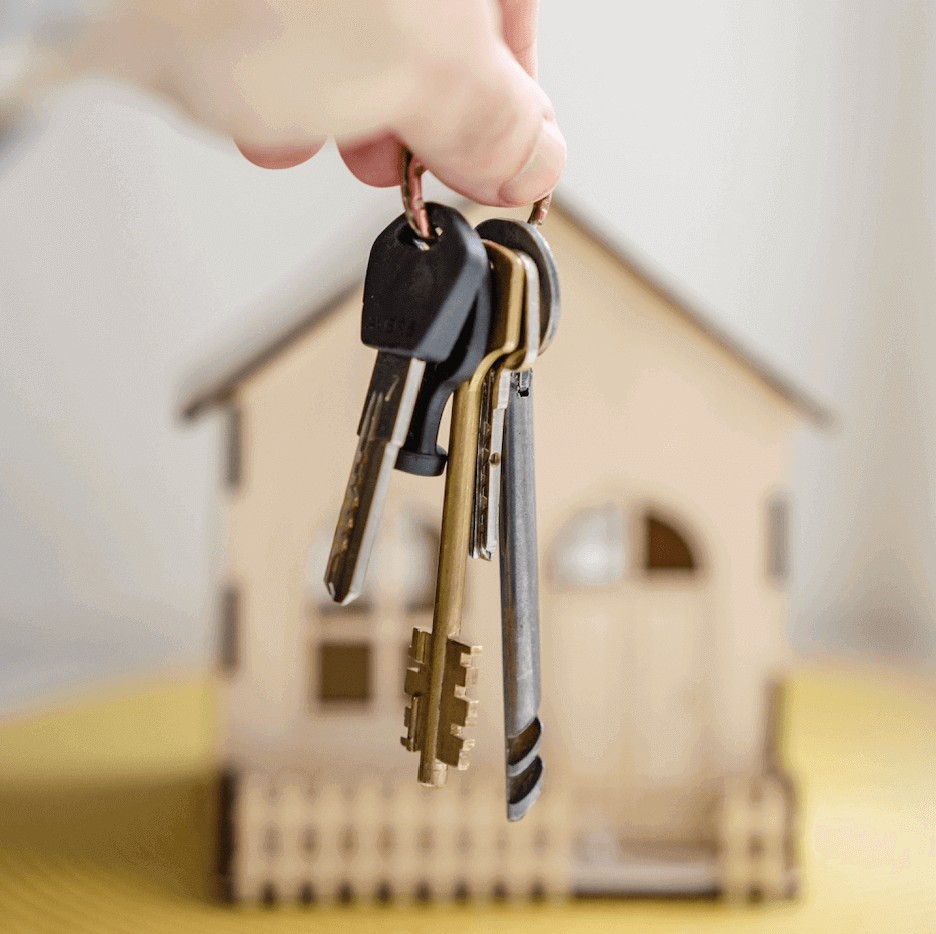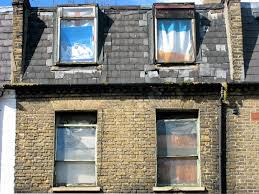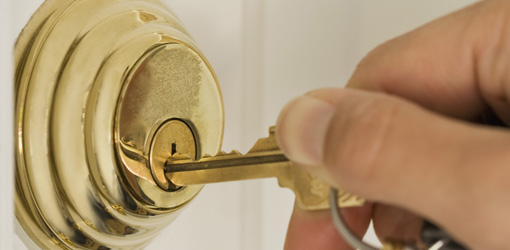Eco-friendly upgrades to save money on your home
Wondering whether or not to make eco-friendly upgrades to your house, and whether it is worth the time and investment to do so? There are some common misconceptions regarding eco-friendly renovations, particularly relating to being so costly to build that it means that you will never be able to make a return on your investment. However, that is simply not the case.
It is possible to help not only the environment but also boost the eco-friendliness of your home whilst also saving money. But how exactly do you do achieve that? Octagon Capital takes a look at the best ways you can make your home more energy-efficient as well as cut down on costs:
- Filling wall cavities in your property
- Look at purchasing solar panels
- Purchase an eco-friendly air-source heat pump
- Use energy-saving bulbs
- Make the most of natural lighting
- Choose water-saving taps
- Be savvy with your window choice

Filling wall cavities in your property
Insulating your cavity walls can help you to save a significant amount on your heating bills each month. This is notably the case for houses built before the 1990s, where many homes built before this period do not tend to have cavity wall insulation already installed, and it is thought that around a third of all heat lost in a property that is uninsulated is lost via the walls. The costs of renovating your property so that cavity wall insulation has been installed costs an estimated £475. However, according to Which? an eco-friendly house that has cavity walls saves each year around £160 when it comes to heating bills, meaning that you will make a return on your investment in just three years.
Look at purchasing solar panels
Of course, one of the most popular ways people decide to make their homes more environmentally friendly is through purchasing solar panels. Some people can be put up by the initial upfront costs involved with installing solar panels (costs can vary between £5,000 up to £8,000) however, you could end up making considerable savings in the long run. According to the Energy Saving Trust, you can earn up to £260 a year if you have solar panels in your home due to government feed-in tariffs, as well as saving on average £60 yearly on electricity bills.
Purchase an eco-friendly air-source heat pump
Perhaps the idea of having solar panels installed on your property does not appeal to you, maybe due to the less than aesthetically pleasing nature of them. This is where having an air-source heat pump instead may come in handy. But what exactly are they?
Air-source pumps help to keep you warm all through the winter months as they generate their heat from outside air (if the temperature is above -15 degrees). The technology that air-source pumps use also provide warm water for your home, as well as provide underfloor heating, meaning that having these installed in your property can have a number of different uses. Furthermore, not only will you reduce your overall carbon footprint, but you will also be reducing your fuel bills in the long-term, as you can expect to make fuel savings each year of up to £1,805.
If the idea of purchasing an air-source pump is of interest to you, you should take a look at the governments Renewable Heat Incentive scheme, created in order to encourage people to pursue more eco-friendly investments for their homes. So whilst installing such a system could cost around £7000 you could end up earning anything between £905 and £1,365 from the Renewable Heat Incentive scheme each year, with the exact amount you receive depends upon the current heating system you have.
Use energy-saving bulbs
Did you know that LED bulbs not only last twenty times longer than other types of bulbs available but that they also use 85 per cent less energy too? This makes energy-saving bulbs one of the cheapest, but also one of the most worthwhile investments you can make in order to have your home not only be more eco-friendly but also to reduce your running costs.
Make the most of natural lighting
We all want to reduce our electricity bills, and one of the easiest ways that you can do this, whilst also being more environmentally friendly is to make the most of natural light in your home. Here are some of the best ways you can do just that:
- Using glass in partitions, doors wherever possible in order to filter as much light between spaces as possible
- Consider having light-coloured floors, as this is another way that light can bounce naturally from the windows into the space
- It is also worth over-extending curtain poles. This means that as you will be able to pull curtains fully back you won't block natural light falling into that room
Choose water-saving taps
Another way you can reduce your bills and be more energy-efficient is by deciding to buy water-saving taps. There are a number of energy-saving taps available on the market that produce hot and cold water instantly, meaning you do not need to boil a kettle.
Be savvy with your window choice
Did you know that whilst uPVC windows actually generate as much as 43 per cent more wast than timber windows, with half the lifetime of them too? Though uPVC windows have been commonly seen as the more environmentally friendly option, it is not necessarily the case. If you are choosing new windows consider having wood windows. This is because overall, it has a lower environmental impact, as it is very thermally efficient as well as being a good insulator.
Ways to get the best rate on your mortgage
When looking to purchase a property you will more than likely need to take out a mortgage, and failing that a bridging loan if you cannot afford to wait for a mortgage to clear. When looking for a mortgage deal, obviously you will ideally want to find the best deal for you and there are ways in which you can ensure this. Recently, mortgage rates broke their respite, bouncing back after a recent slide. The 30-year fixed-rate mortgage averaged at 4.53% as of the 12th of July 2018. This is an increase from the previous weeks at 4.52%.
We have put together a list of things which you can do to help you get the best deal on your mortgage possible.

Your credit score and credit history
Getting the best rate on a mortgage starts with your credit score and your credit history. Both are a crucial part of obtaining any type of finance, including a loan, a credit card or, of course, a mortgage. Basically, the lender’s underwriting team will use your credit history and current credit score to measure how much risk you pose as a borrower, as well as the rate they are willing to offer you.
If you are unaware, your credit score essentially summarises what is in your credit report, represented by a number. The highest indicating number is 999 and the lowest is 0. You can use your credit score to understand how your credit history or report might look to a lender. With this knowledge, you can attempt to boost your credit score by doing a number of recommended things including always paying off any debts on time and in full, and not applying to too many lenders at one time.
Pay the largest deposit you can reasonably afford
This may seem strange to some, but the larger your initial deposit is, the less you will ultimately need to borrow. Furthermore, your mortgage provider will see you as less of a credit risk if you put down a larger amount at the deposit stage. In exchange for a bigger deposit, you will usually be offered a lower interest rate.
Lenders tend to offer the best deals to those who put down 40% or more. If this is unrealistic for you, you can usually find good deals with a deposit of 20%. However, if you go any lower than this, expect the interest rates to shoot up.
Shop Around
Like when looking at any type of loan, your best bet is to shop around to compare what deals are available to you. Your bank is often a starting point when thinking about taking out a mortgage. If you are already a member of the bank you approach, you may find that they offer you discounts or rewards – however – this might not always be the best deal.
It is no secret that a mortgage is one of the biggest financial commitments you may ever take out. Therefore, it is very important to do your research and not just jump on the first deal you find which looks alright.
Beware of fees
The interest rate that you receive will have a large impact of your monthly repayments as well as the overall cost of your mortgage. However, this shouldn’t be the only thing that you consider. Be aware that with a mortgage comes many fees, some which are not so explicit. In some cases, the overall cost of the fees may actually outweigh the benefits of agreeing to a mortgage with a lower interest rate.
The three most common fees are:
- The arrangement fee
- The overpayment fee
- Early repayment fees
The arrangement fee is what you will pay your lender in order to cover the administrative cost of setting the mortgage up. This fee can be upwards of £2,000.
The overpayment fees involve overpaying your mortgage. This can save you money in interest and help you to repay your mortgage sooner. It is typical that lenders will let you overpay by up to 10% of the outstanding amount each year. However, some lenders want to dissuade overpayment and put a fee in place to ensure that it is not worth it.
The early repayment fees are similar to overpayment fees in that they are in place to dissuade you from paying off your mortgage early. The reason for this is because the lender will lose out. Not all lenders have the fee in place, so check this out before filling in any applications.
Where Do Celebrities Live in London?
London is not only one of the coolest places in the world to live, it is also one of the most expensive. Naturally, alongside the entertainment industry being focussed there, Celebrities are therefore drawn to living in England’s Capital city.
But it is no secret that London is a vast place, so which spots are bursting with famous faces? Celebrities tend to want to live in private properties with access to green spaces as well as shopping and lavish restaurants. It is no surprise then that celebrities tend to gravitate towards certain areas in London which offer a vibrant and private lifestyle, including the following:
- Kensington and Chelsea
- Richmond
- Notting Hill
- Highgate
- Fulham
- Clapham
- East Dulwich
Here, Octagon Capital take a look at these celebrity-heavy neighbourhoods in London.
Kensington and Chelsea
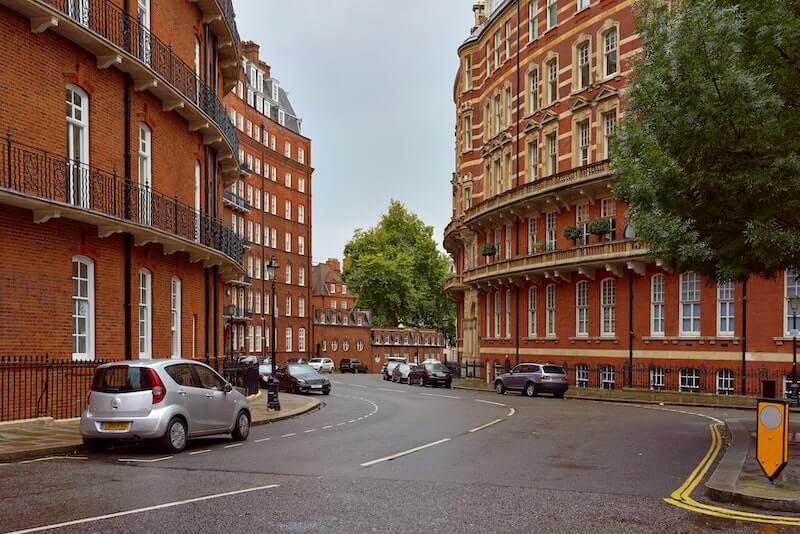
Probably one of the better-known areas where the rich and famous reside is Kensington and Chelsea. It is known to house some of the most outrageous basement bunkers which are complete with swimming pools and private bars.
The townhouses in this area often have the added feature of rooftop gardens and state-of-the-art fixtures.
Some famous people who live in this area include British Rapper Stromzy, rock legend Eric Clapton, Madonna and Rowan Atkinson. Fashion designer Paul Smith’s Kensington based mansion is worth a whopping £135 million!
Richmond
Richmond is famous for big pads and famous faces. An extremely expensive place to buy or rent, it is a haven for the UK’s celebrities.
These celebrities include Mick Jagger, Tom Hardy, Pete Townsend, Jerry Hall, David Attenborough and Rick Astley. Brad Pitt and Angelina Jolie has bought a £16 million property here back when their marriage remained intact.
Notting Hill

Notting Hill is home to wonderfully colourful homes in rows, which are both highly desirable and highly expensive. Notting Hill is particularly famous following the 1999 romantic comedy of the same name, starring Julia Roberts and Hugh Grant.
This affluent area of west London is prized for the renowned market where you will find plenty of vintage Chanel, Hermes and Dior.
Music stars Robbie Williams and Bjork are said to reside in Nothing Hill.
Highgate
Situated in North London, Highgate is one of the sleepier areas of London – this is probably why so many celebrities love it there. It is slightly out of the way of the hustle and bustle of central London.
Famous faces who live there include supermodel Kate Moss and actor Jude Law.
Fulham
The attraction of independent boutiques, notable hangout spots like the Durrell Arms and the fabulous brunch spot, Manuka Kitchen, is enough to bring in the celebrities to the area on a permanent basis.
There is an area of Fulham Road which is known to the locals as “The Beach”, which is beautiful and a place you would want to spend your time. You will find this area lined with convertible porches parked outside of galleries and gastropubs.
Clapham
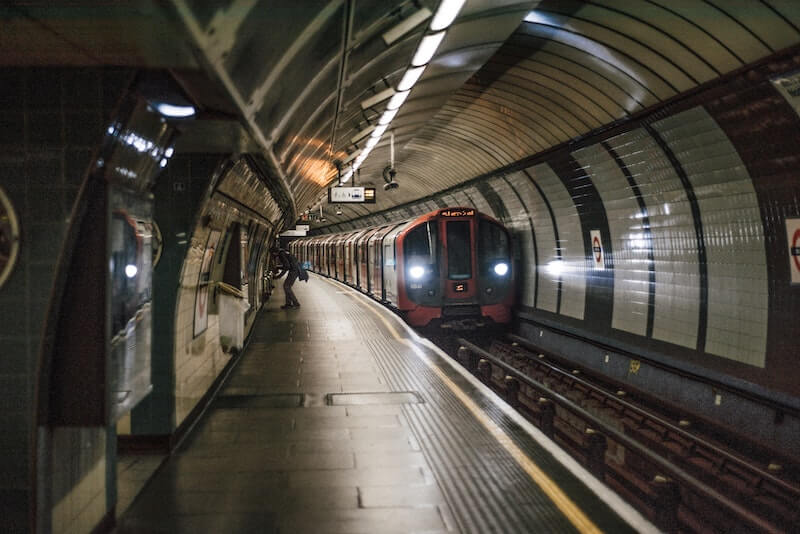
An up and coming area of south London is Clapham. It has been dubbed one of the most fashionable areas to live and is certainly popular with the younger generation, as well as celebrities.
It is a usual sight to stroll through Clapham Common on a Saturday morning and see people working out in the sun, taking their dogs for a walk or sunbathing on the grass.
Notable and powerful celebrity women seem to favour Clapham, including Margot Robbie, Vivienne Westwood, J.K Rowling and Vanessa Redgrave.
East Dulwich
Located in South East London, East Dulwich is an area which is known for being in the city, but feeling like a village. Because of the village vibe and the location is slightly outside of central London, a host of celebrities’ call East Dulwich home. To name a few, Tom Cruise, James Nesbit and Steve Frost have all had property here at one point or another.
Reasons You Might Be Declined For a Secured Loan
If you are looking to apply for a secured loan, it is important to know that there is a possibility that you may be rejected and if you know the reasons for that, you may be able to prevent it. You may have already applied for a secured loan only to be declined, but are unaware of why this has happened.
In this guide, for your clarity, we are going to look at some of the reasons that you may be declined for an application on a secured loan. But first, let’s look at what a secured loan actually is.
What is a secured loan?
A secured loan can also be referred to as a homeowner loan because a secured loan has the debt associated with it linked (or ‘secured’) to the loan borrower’s property. Secured loans, thus, are only available to be taken out by people who already own or are buying their own homes. A secured loan can be used to borrow anything from the £5,000 mark and upwards.
With a secured loan, the amount you are entitled to borrow, the duration of the loan agreement and the amount of interest which will be offered is wholly dependent on personal circumstances and the amount of free equity which you have in your property.
But if you do qualify as a homeowner, why might you be rejected by a lender for a secured loan?
Poor Credit History
Like with any type of monetary lending, your credit score can make or break your chances of borrowing or can affect the kind of deal available to you. You can read more about your credit score here.
If you have a history of missing payments or failing to repay your previous loans or on your credit card, this can seriously damage your credit history and thus, make you look like more of a risk to a lender.
If this is the case for you, there are things that you can do to improve your credit score including:
- Always paying your credit card statement in full, each month
- Only applying for loans when you need them – too many credit search footprints on your file could decrease your credit score
- Always pay back loans in full, with the interest
Have Made Applications For Payday Loans
Some secured lenders consider payday loans to be a very high risk financial solution and means that you might have been desperate for funds. Not all secured lenders view it this way. One major mortgage provider recently said that payday loans (Source: MY JAR) were fine provided that they were paid off on time. Some providers will not consider it an issue if it was several years ago. Other similar high-cost credit products include cash advances, pawnbrokers and logbook loans.
A Spouse with Poor Credit History
You may have a good credit score, but in actual fact, your legal spouse's credit history may be your downfall when applying for a secured loan. Seeing as marriage ties you in more ways than one, one way is being financially linked, you are seen as a risk if your husband or wife does not have a good credit history attached to their name.
Especially with secured loans, since they are for homeowners, it is assumed that you help either out financially and that the mortgage and so on will be a mutual responsibly.
Your Collateral is Not Valuable Enough
The collateral that you have to offer in order to secure it against the loan may not be seen as valuable enough to the lender. To them, if your collateral is of less value, it is more of a risk lending to you as they will not get their payment back if you fail to pay it.
For a secured loan, your collateral could be your property or a car, for example. If neither of these is deemed valuable enough, your loan request may be denied.
In a similar way, you may only have little equity on your house at the point of application. Basically, what this means is that you do not own enough of the property to gain a secured loan.
How Much Are You Asking For?
Depending on your needs, you may find that you are needing to borrow a little amount or a larger amount. It is true that the amount you are wanting to borrow can play a part in the lender's decision on whether or not to grant you a secured loan.
What Are You Planning on Using The Secured Loan For?
Likewise, a secured lender may refuse you based on the reasoning behind your loan. Many lenders will ask you this question as part of the underwriting process and if it is something they deem unfit, they simply will not grant you a secured loan.
Bridging loans
You may find that you are struggling to get a mortgage in place and time is running out before you lose out on a property which you are hoping to purchase. An option for you might be a bridging loan.
Essentially, a bridging loan is a type of short-term finance which aid you in ‘bridging the gap’ between you and the mortgage, allowing you obtain the property without a mortgage in place prior. Rather than losing a potential property, you can apply for a bridging loan and receive the money in one lump within a few working days. Once the property has been purchased and has access to more finance, you will be required to repay the loan.
Do you have to tell your mortgage provider if you change jobs or get pregnant?
Since changing your job or falling pregnant can have an effect on your finances, you may be earning or less in your new job and obviously, having a child is another outgoing expense.
Therefore, is it protocol to let your mortgage provider know about either of these life changing events?
According to a recent survey created by uSwitch, one in ten women between the ages of 25-45 said that they felt as though they had been discriminated against by lenders once they had expressed their desire to start a family.
Affordability rules which came in 2015 mean that some firms are now required to ask questions about changes in income.
If you fall pregnant
Women have advised to be made aware of the pregnancy pitfalls when applying for a mortgage or are currently paying a mortgage. Due to the change in rules, new parents who are applying for a mortgage from some of the largest lenders are being asked to prove that they will be returning to work after their maternity and/or paternity leave before they can be included in their usual affordability checks.

If the couple or individual is not going to be returning to work within three months, their “return to work” income may not be included in the overall checks. As a consequence, the price of the mortgage may be calculated based on their pay during the period of maternity or paternity leave.
Lenders such as Barclays, RBS and NatWest base their decision on the salaries on the applicants will be receiving after they have returned to work rather than the pay they will receive whilst they are on leave, which seems far more logical.
What can lenders ask about pregnancy?
Lenders are prohibited from asking you whether you are currently pregnant, planning a pregnancy or on maternity leave when you apply for a mortgage. This question would go against the Equality Act 2010 as plain discrimination.
Nevertheless, tighter lending rules mean that they are lawfully required, not just entitled, to take into account any future changes to your incomings – this then works for if you are just changing jobs as well. Of course, having a baby can have an impact on both parties so this should be taken into account by the lender.
They will ask if you are aware of any changes to your income in the near future and if you answer yes because of a pregnancy, the underwriter will look at whether you are able to afford the mortgage as though you already have an additional dependent. This basically means they will factor in any child care expenses.
You can also expect to be asked about your salary on your return to work, the length of your maternity or paternity leave and if you are planning to return to work full-time or part-time.
If you are changing jobs
It is the same premise as if you were to fall pregnant, lenders are now required to take into account any income changes. This could work in your favour if you are getting a larger salary as this will mean you may be able to snap up a better deal on your mortgage if you can afford to pay more off each month. So if you change jobs with a mortgage in place, it is vital as well wise to let your lender know and inquire whether a better deal is available to you if your income has been increased.
According to the Council for Mortgage Lenders, the information about your change in financial situation is gathered to “try to reduce the risk of borrowers taking on debt commitments that could become unaffordable.” Therefore, lenders will ask if you are aware of any changes to your income in the foreseeable future (whether this is due to a new arrival or change in job).
Consider a Bridging Loan?
If you are in need of cash to buy a house urgently but do not have time to wait for a mortgage to clear, an option for you might be a bridging loan. A bridging loan is a type of short-term finance which essentially ‘bridges the gap’ between you and the mortgage, allowing you obtain the property without a mortgage being cleared. Rather than losing a potential property, you can apply for a bridging loan and receive the money in one lump within a few working days. Once the property has been purchased and has access to more finance, you will be required to repay the loan.
Things to consider when looking to buy a house
Buying a house is an exciting step in your life, but it is also one of the biggest financial commitments to will ever make most probably. Therefore, you have to make sure you do it right – taking into consideration everything possible before making the jump. A big financial commitment where small mistakes can cost you even more than expected.

Nonetheless, with the introduction of the government scheme Help to Buy, owning your own house is becoming more of a reality for more people. In consequence, there are more people in need of advice as to what they should be looking out for when going about buying their first property.
You wouldn’t just spend 20 minutes making a decision about a property which you are going to live in for the foreseeable future, or even for the rest of your life! Some would, which is why we have put together this guide which highlights some of the key things you need to look at when visiting a potential property.
Should you be buying at this moment in time?
Look at the current climate of the housing market. It is true that we have had some devastating years where house prices were so high people simply couldn’t afford to move and years where people were receiving only a fraction of what their house was actually worth.
As a buyer, you should concentrate on whether buying is affordable and will ultimately be the best decision for you in the long term. This is better than buying in the mentality that you should be a homeowner by a certain stage in your life.
Mortgages
With buying a property comes a need for a mortgage, for most of us anyway. Buyers need to factor into the budget how much they can realistically spend each month paying back their mortgage.
As mentioned previously, the Help to Buy scheme has been in place for some years now. As a feature of this, the government have helped to increase the choice of mortgages for people with 5% to put down. However, borrowers will pay a premium at this level. Mortgage deals become a little for competitive if you have 10% or 15% to put down and the really decent rates come in once you can put down 25%.
If you are in need of money to buy a house now but do not have time to wait for a mortgage to clear, an option for you might be a bridging loan. A bridging loan is a type of short-term finance which essentially ‘bridges the gap’ between you and the mortgage, allowing you obtain the property without a mortgage being cleared. Rather than losing a potential property, you can apply for a bridging loan and receive the money in one lump within a few working days. Once the property has been purchased and has access to more finance, you will be required to repay the loan.
Check out the overall neighbourhood
When looking to buy a house, the location should be just as important to you as the property itself. There is no point living in a lovely house in an area which is worn-down and crime-ridden. At the end of the day, you can do a house up in a nice area, but you cannot move a house out of a bad one.
We advise that you should take some time after finding a property that you like to explore the neighbourhood. See what it has to offer – are there shops, restaurants, pubs, parks and so on? What are the local schools like? Is the town clean and presentable, or is it covered in litter and graffiti?
Is the building itself structurally sound?
When viewing a property, you should look out for things like big cracks in the walls as well as smaller problems like damp which may affect the structure and the living environment. Hairline cracks should be nothing to worry about and most places will have these, it is the bigger and more serve ones you should look out for.
You should also look at things like where the extension joins, bay windows and end-of-terrace walls – all of these can start to bow away from the rest of the house if not done well.
The roof is also an area of concern for buyers. Replacing a roof can be extremely expensive and you may not have the budget to do this on top of buying the property. A roof should last about 15 to 20 years, so you should check with the seller how old the roof actually is before making an offer because an old roof may give you grounds to knock the price down.
Evaluate how much storage there is
Often, buyers get so swept up in the excitement of the buying process that they miss out whether the properties they look at have sufficient storage for their amount of personal possessions.
Storage is a massively valuable asset on a house, it increases the monetary value and makes it a nicer environment to dwell in.
When looking around the property, you should think things like “where will I keep my vacuum cleaner, towels, beddings and miscellaneous boxes and products?” It is not impolite to ask the homeowner where they store things like this, after all, it is a selling point to have good storage so they will probably be more than happy to show you.
In addition to this, you should evaluate whether the rooms are big enough for your needs? The way that it has been styled by the sellers may make the rooms appear bigger than they are, but you should consider what the rooms would look like with your furniture in them.
Is the plumbing good?
Run the taps to check out what the water pressure is like. Ask the homeowner if the pipes are insulated and make sure that they are not made of lead as you will have to replace these as soon as possible. Check the radiators and the boiler work and aren’t too old, again these might need replacing adding more cost on to your move.
Things to look out for when buying a property aboard
It is usually the case, understandably, that buying a property overseas is going to be more complicated than simply buying locally. If you are looking to acquire a property abroad, you may be wanting a holiday home situated in the sun or may be looking to actually completely relocate outside of your domestic country.
Second properties abroad are great for saving money on holidays in the long-term, as you never have to worry about finding and forking out for accommodation when you can simply just jet off to your own private home which is self-catered – no need to seek out an all-inclusive deal!
Plenty of people choose to find a home in a different country as part of their retirement plan and live out the rest of their lives in luxury, soaking up the sun after years of hard work.
There are a number of things which you need to consider when aiming to purchase property abroad. These include certain risks as well as working out how you are going to get a mortgage overseas.
In this guide, we will explore the difficulties you may face when buying abroad and provide advice as to how to overcome these potential barriers in your way, including:
- Getting to know the risks of buying abroad
- Getting a mortgage for your property based overseas
- Making sure you've researched the area
- Consider a time-share or joint ownership

Get to know the risks of buying abroad
Tax
Make sure that you are aware of how much tax you will be required to pay. You need to account for this when deciding if you can afford to move abroad or take up a second home overseas. If you have two properties, you will be paying tax on the one in the UK and the one in the country which you have opted to purchase a property in.
Check the paperwork
Be sure to acquire all the necessary paperwork beforehand. This includes permissions, licenses and planning consents – these should be in place before you sign any kind of contract or agreement which binds you to the property.
You also need to know your Visa rights. In most countries, you are not allowed to live in your property for the whole year if you are on a standard Visa. You will have to see what the rules are in the country which you are choosing to buy in before you look to buy at all. It may be that you can only stay for a few weeks or months at a time.
Exchange rates
You need to be aware of the risk of the exchange rates of any given country. Even just a small shift in the exchange rate can have a profound effect on the value of your property. The exchange rates changing could even mean that your property and/or your mortgage repayments practically unaffordable overnight.
Getting a mortgage for your property based overseas
If it is the case that you have a mortgage where you are going to be making the repayments in a foreign currency, it is compulsory for the lender to make you are of the exchange rate if it fluctuates by more than 20%. Any fluctuations can seriously affect your ability to meet any future mortgage commitments which you have signed up for.
Therefore, in order to protect borrowers from falling victim to this, lenders must offer the borrower the option to repay the mortgage in a different currency to the one it is currently being paid in.
If you do not have time to get a mortgage sorted before completing on a property, consider a bridging loan. If you are wondering what a bridging loan is, essentially, A bridging loan is a type of short-term finance which basically acts to ‘bridge the gap’ between you and the mortgage, allowing you to obtain the property without a mortgage being cleared. Rather than losing a potential property, you can apply for a bridging loan and receive the money in one lump within a few working days. Once the property has been purchased and has access to more finance, you will be required to repay the loan.
Make sure you have researched the area
You may be set on a particular country, but are you clued up about the area you are looking in? It may be time for an excuse for a quick holiday to explore the area! You will want to look at the local facilities; is it close to a food store? Are there nice places to eat and drink around, if that is important to you? What things are there to do in the area? And what are the transport links like?
If you are not set on a particular country but just know you want to buy abroad, look at the cultures, safety and economic and political stability of a territory before you make the jump into signing anything. It is not wise to look at getting a holiday property in somewhere which is known for acts of terrorism, war and political unrest. Not only will you probably feel less safe visiting your property and therefore it might not make the purchase worth it in the long-term, the value of the house will be low due to these factors. So yes, you may be able to buy it for a cheap price, but when it comes to selling it you are likely to make a loss.
Consider a time-share or joint ownership
If you are not going to be in your overseas property all of the time, why not consider saving some money and partaking in a timeshare or joint ownership. Buying with friends, family or finding people through an organised group is sure to open the door to plenty more opportunities as to the type of property you can realistically afford to buy, as well as a more premium location.
The way this works is that you have joint-ownership of the property, all parties having full use of the home. You can arrange to book it off for yourself or you can all enjoy it together. This way, you can have a private holiday home for a fraction of the price and it is still being used, cleaned and maintained when you are not there if someone else is from your agreement.
What is Asbestos and how do you get rid of it?
Asbestos is a naturally occurring mineral made up of extremely small fibres. It was used in building construction commonly between 1945 and 1985 but was banned from use when the risks it can potentially bring were identified.
On average 20 tradesmen die every week as a result of asbestos exposure. Building contractors, plumbers, electricians and decorators are particularly at risk because they might interact with asbestos without realising that they are.
The management and responsibility of asbestos are laid out in Regulation 4 of the Control of Asbestos Regulations 2012.
You are most likely to uncover asbestos in a number of places:
- Sprayed asbestos and asbestos loose packing, which is being used as fire protection
- Moulded or pre-formed lagging used as thermal insulation to pipes and boilers
- Asbestos Insulating Board used for fire protection and thermal insulation or as partitions and ducting
- Asbestos cement products which have most lily been moulded into corrugated roofing sheets, cladding, guttering, downpipes, flues and water tanks
If asbestos material is disturbed or if they are in poor condition, they release a huge number of needle-shaped fibres which can be inhaled into the lungs. These fibres can then lodge in the lungs and can lead to several diseases a number of which are fatal, namely lung cancer, asbestosis or mesothelioma. Click here, to learn more from the government.
Frighteningly your home has a 50% chance of containing asbestos but experts say that if the asbestos is not disturbed you are at little risk of harmful exposure, but the sites or pockets where asbestos may be harbouring must be regularly checked as a preventative measure
Who is responsible for maintenance or repair?
If you are responsible for maintenance or repair of premises or equipment, you are the duty holder and will need to follow the next steps, but this only applies to the following:
- All non-domestic premises
- The common parts of domestic premises
Testing for Asbestos
If you are not planning on undertaking any works and you have had your premises checked previously for asbestos you do not need to worry. But if on the other hand, there are a number of surveys you can have performed to determine asbestos’s presence:
- Asbestos management survey
- Refurbishment/Demolition survey
- Brownfield Sites asbestos survey
- Old Equipment pre-2000 guidance service
N.B. Before undertaking any asbestos work you are legally obliged to inform those at risk of any works you have planned.
Removing Asbestos
We highly recommend bringing in a professional to remove asbestos but if you believe you are qualified to remove it yourself then there are a number of steps you can take to do so.
The link below will take you to a website which will allow you to get in touch with someone to help you remove the asbestos from your home.
Before beginning asbestos removal work, however, it is essential that either yourself or contractors complete the ASB5 form and return it to the Health and Safety Team before starting.
Competence for removing asbestos is something that is formulated over time not just by taking a simple course, however, the recommended information is often learnt through the book in the link attached.
If you are in the process of moving house, consider taking out a bridging loan to save yourself the stress of waiting for a mortgage to clear and potentially losing your property altogether.
What happens if you have squatters?
Squatting is when a person enters a property on purpose without permission and lives there or has plans to live there. Squatting is occasionally referred to as “adverse possession”, but this is not a term you are likely to hear colloquially.
It is important to remember that squatting in a residential building is illegal. It can likely lead to 6 months in prison or alternatively a large fine, or in a worst-case scenario both.
A person who enters a property with the permission of the landlord or owner is not considered a squatter.
N.B. If you are renting a flat or house and you are late with your rent but you continue to live at the property you are not squatting if you continue to reside there.
What is legal and what is not because slightly more confusing when looking at the protocol surrounding squatting in a non-residential building or land. Whilst it isn’t technically a crime, it is a crime to damage the property.
It is also typically a crime not to live a property when you are asked or instructed to do so by a following number of persons:
- The owner
- The police
- The council
- A repossession order
Why do people squat?
Before dealing with the squatter it might be relevant to consider the motivations behind people choosing to squat.
The United Kingdom has a long history of issues with squatting however things became critical in the 1960s and 1970s as the youth became more interested in alternative lifestyles and became more politicised. However, these lifestyle squatters are in the minimum and it is mostly rough sleepers or other vulnerable groups who will be squatters. According to the homeless charity Crisis, 39% of homeless people have squatted for some period of time.
Removing Squatters
You can remove squatters uses two main processes. The first is called an Interim Possession Order or making a claim for possession.
N.B. Do not try to remove the squatters yourself by threatening them verbally or using physical force, because if you do this you are technically committing a crime
Interim Possession Orders
You are only eligible to apply for an IPO if it has been 28 days or fewer that you discovered your property is being squatted on.
The IPO has to be filled in and then sent to a county court. The court will then send a confirmation of receipt within a few days and they will also send you a number of extremely important documents that you must present to the squatters within a 48-hour time frame.
Once the squatters have themselves received the IPO they are at risk of going to prison if they don’t leave your property within 24 hours or they don’t stay away from your property for 12 months.
If you want to the final possession of the property in question you have to file a claim for possession. You can do this either as a part of your IPO application or separately online, it depends on your preference but both are valid.
N.B. You cannot use an IPO if you are also claiming for the damages caused by the squatters if this is the case you should make a normal claim for possession; or furthermore, the IPO does not apply if you are trying to evict former tenants, sub-tenants or licensees
N.B. It is important to remember that to have an interim possession order can often be as costly as a couple of thousand pounds.
Squatters' Rights
A squatter who has been residing or a property or piece of land can potentially become the registered owner even if they’ve occupied without the owner’s permission.
As a squatter who are eligible to apply for this if you fulfil the following conditions:
- Either one or a succession of squatters have occupied the property for an uninterrupted period of 10 years or more
- You or those who came before you have acted as if you were indeed legal owners of the poetry
- You or any of the predecessors didn’t have the owners permission
How to keep squatters off your property?
As if fairly obvious having efficient security is one of the most crucial factors to preventing squatters from coming to settle on your property. If they force their way onto your property they have caused physical damage and this is an offence. If you are leaving your property for an extended period of time it might be worthwhile informing neighbours and other relevant individuals so they can keep an eye out on your property. There is a third option, which is to sign your property over to one of the numbers of UK property guardian schemes which look after properties of personal and commercial use on behalf of the owners.
What do you do if you suspect there are squatters in your neighbour's property?
If you are of the suspicion that someone might be squatting in your neighbour's house and you are aware that they have not asked for anyone to come stay there whilst they are away, it is the best course of action to call the police.
Where will a squatter live after they have been removed from the property?
If you were previously a squatter and then are removed from the property and have nowhere to reside there is the chance that the council may be able to rehouse you or help organise alternative residential plans for you.
For those who are in the process of buying a property but need to complete before they are likely to get a mortgage approved, see our information on bridging loans.
What to consider when buying a house
They say one of the most stressful things in a person’s lifetime is buying and selling a house and the consequent move which follows. There is no doubt that buying a house will be one of the biggest and most important purchases of your entire life in which small mistakes can result in big costs.
Consider whether you should be buying at all
Ask yourself, is it the right time for me to buy rather than continuing to rent? As of recent in the UK, house prices have steadily been on the rise and this is adding pressure to anyone trying to buy. This is why a pause in thought is vital to really think if now is your time to make that huge purchase.
As a buyer, you should focus on whether buying is going to realistically be affordable for you, you must take into account the little costs and continuous costs which you do not have to think about when you are simply a tenant. Do not think that jumping straight on the property ladder is the best option just because the British mentality and media are telling you so.
Mortgage & Loans

Part of buying a property is taking out a mortgage. Very few people can straight up buy a property without having to take out a mortgage, so chances are you will have to do so.
You need to uncover how much you can borrow when it comes to a mortgage, this will be based on a variety of different factors.
You can use a Mortgage Deposit Calculator as provided by Money Saving Expert to determine when you will have the correct amount to pay for a deposit on a mortgage. Government schemes such as Help to Buy have actually aided in the improvement of the choices of mortgages for people with 5% to put down. However, borrowers will pay a premium at this level. The deals do become more competitive at 10% or 15%. But for the most decent of rates, you will need around 25% for your deposit.
If you are needed to urgently complete on a property, you may want to explore the option of a bridging loan. A bridging loan is a type of short-term finance which can be used to “bridge the gap” financially when a mortgage might take too long to come through, resulting in losing the desired property. With a bridging loan, you can receive your funds within a matter of days.
Consider boosting your credit score
It would be a mistake to apply for a mortgage before checking out your credit files to see if they are error-free. Having any small mistakes can result in your application being rejected. An example of this may be active accounts which are registered to an old or a wrong address. To avoid heartache, check through your credit files and ensure that any active accounts are registered to your current address.
Check out the potential neighbourhood
No matter how lovely the home is itself, the area in which it is located is essential to your happiness when living there. Before completing on a property or even putting an offer in, you should check out the local area to make sure it is the type of place that you would want to live in.
Visit local parks, pubs and shops to see what the neighbourhood is like at different times of the day. Are the facilities good and well-maintained, or are they covered in graffiti and look half-abandoned?
Consider making a checklist of things within the house and in the neighbourhood, that may be deal breakers. This could be damp in the home or no train station in the area which may be needed for ease of travel or a commute.
It may be a nice idea to chat to a few locals in the places you visit and ask about life in the area. Whilst you are visiting, why not take photos and use them for reference when making your decision. This goes for the local area as well as the actual property, but do get permission from the estate agent.

